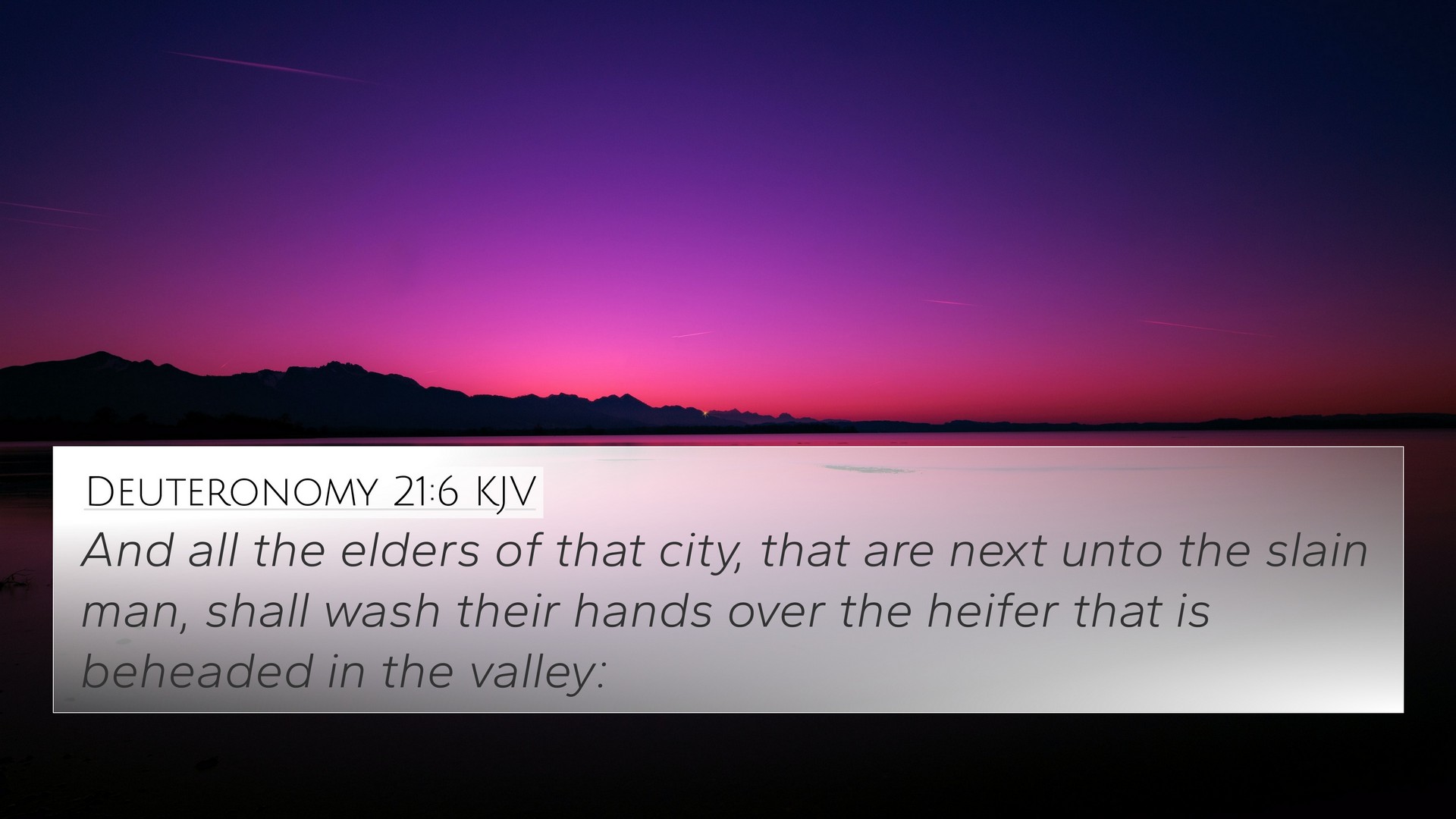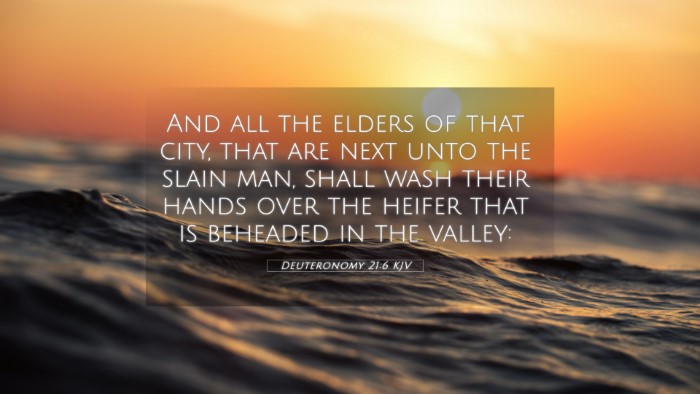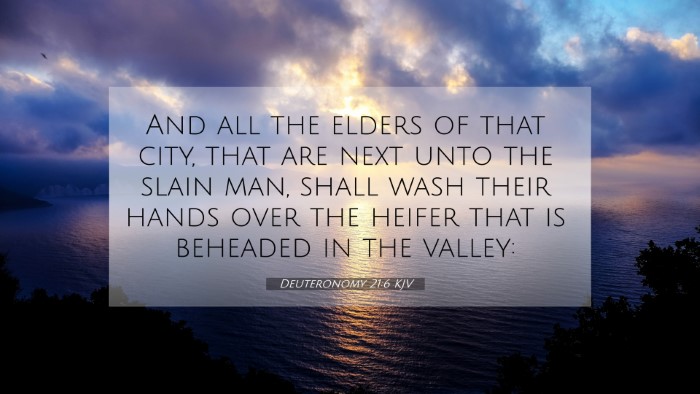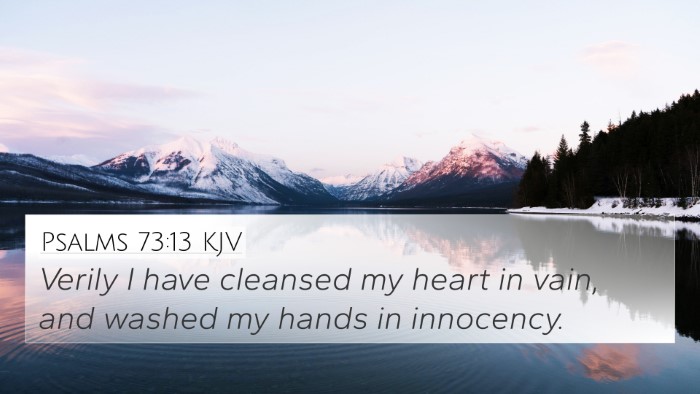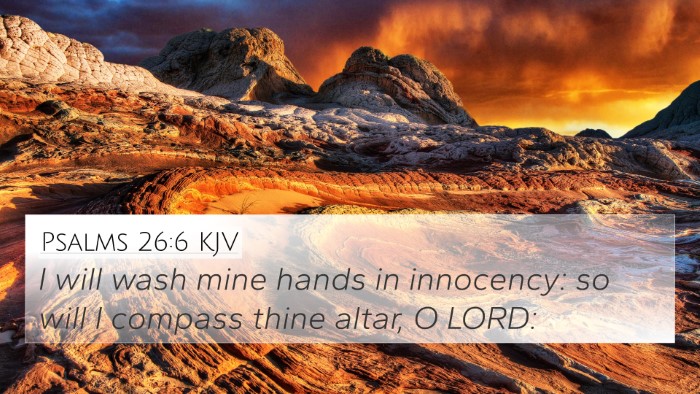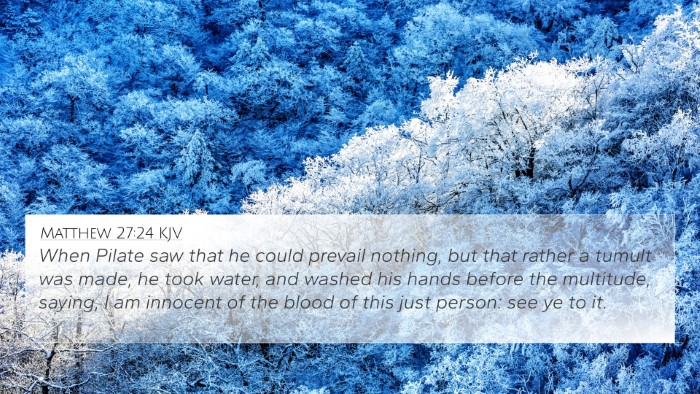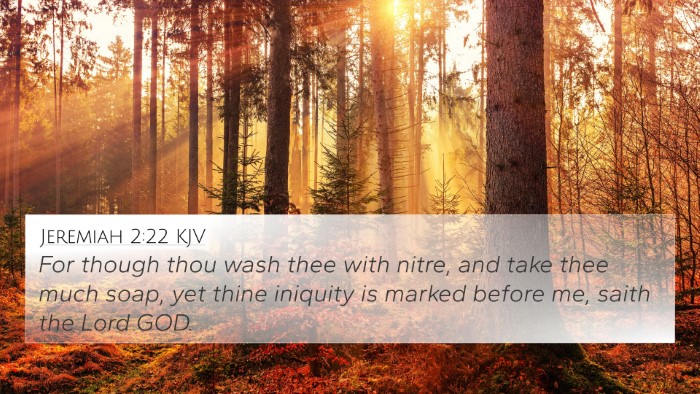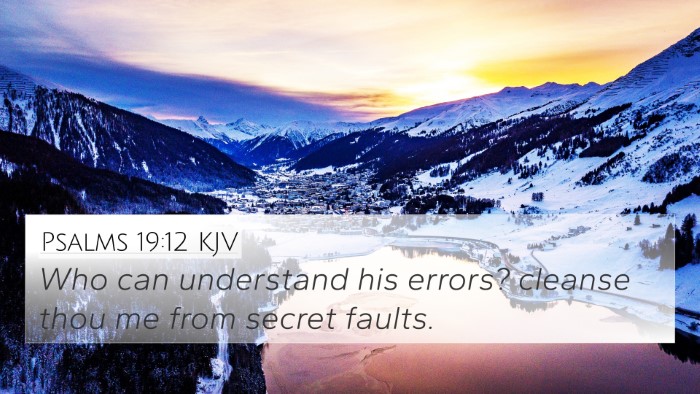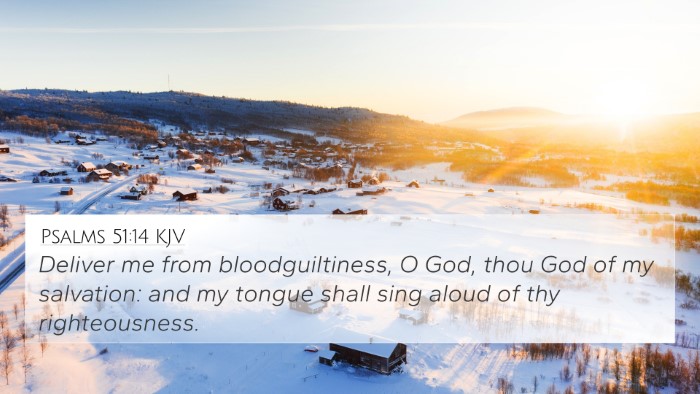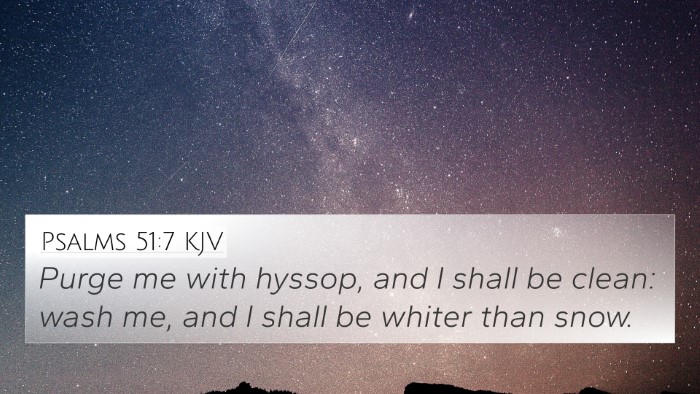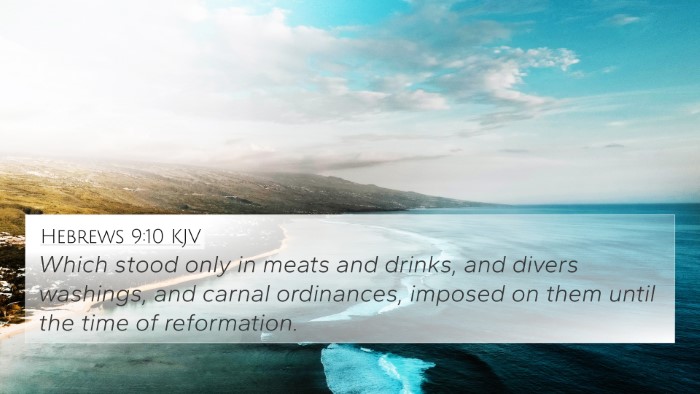Deuteronomy 21:6 - Understanding the Context and Meaning
Deuteronomy 21:6 reads: "And all the elders of that city shall come out, and they shall be close to the heifer that is broken through the neck, and they shall declare: 'Our hands have not shed this blood, nor have our eyes seen it.'" This verse is part of a passage that articulates the procedure for dealing with an unsolved murder and emphasizes the community's responsibility in ensuring justice. Below, we explore its meaning through commentaries and scriptural connections.
Summary of Commentary Insights
-
Matthew Henry:
Henry explains that this rite demonstrates the public acknowledgment of innocence and the corporate responsibility of the city. The elders symbolically sever their connection to the crime, underscoring the importance of justice in society.
-
Albert Barnes:
Barnes emphasizes that the action of breaking the heifer's neck represents a severe act of atonement. The elders’ declaration of innocence serves as a testimony that they played no part in this wrongful death, highlighting the communal aspect of guilt and responsibility.
-
Adam Clarke:
Clarke offers insight into the cultural and historical context, explaining how such rites were essential in ancient Israel to prevent guilt from the community. The elders’ role is crucial as their leadership upholds societal integrity.
Key Themes and Reflections
This verse emphasizes the importance of community in the justice process. It reflects themes such as:
- Community Responsibility: The involvement of the entire city in acknowledging violence and guilt.
- Atonement and Innocence: The ritualistic actions signify a plea for mercy and the affirmation of innocence.
- Leadership and Public Acknowledgment: The role of leaders in guiding the community toward justice and transparency.
Bible Verse Cross-References
Several other biblical passages connect with the themes highlighted in Deuteronomy 21:6. Here are some relevant cross-references:
- Numbers 35:33 - Discusses the atonement for the shedding of blood and its consequences.
- Exodus 21:29 - Addresses the responsibility of the owner of an ox that kills someone.
- Deuteronomy 19:10-13 - Clarifies the cities of refuge for unintentional manslaughter.
- 2 Samuel 21:1-14 - A narrative that touches upon communal guilt related to bloodshed.
- Matthew 5:21-22 - Jesus discusses anger and murder, linking Old Testament law to renewed understanding.
- Romans 13:4 - Explores the role of governing authorities in administering justice, paralleling the elders' duty.
- Acts 20:26 - Paul’s declaration of the purity of one's hands relating to the responsibility of proclaiming truth.
Linking Bible Scriptures
Connections between this verse and others can be explored through:
- Thematic Bible Connections: Analyzing themes of justice, guilt, and community accountability found throughout Scripture.
- Comparative Analysis: Evaluating how various biblical accounts handle the issue of bloodshed and accountability.
- Cross-Referencing Methodologies: Utilizing tools for Bible cross-referencing to deepen understanding of related texts.
Conclusion
Deuteronomy 21:6 is a powerful reminder of the importance of communal integrity in the face of injustice. By approaching this verse with a mind toward its connections with other Scripture, we gain further insight into God's expectations for His people concerning justice and responsibility. The listed cross-references serve as a guide for those seeking to further explore inter-Biblical dialogue and thematic connections.
